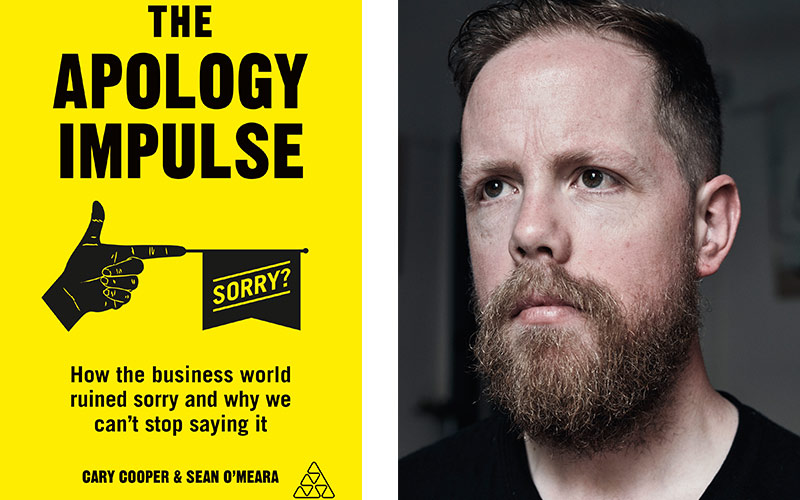The art of apology

If your company has made a mistake but gets its apology wrong, the impact on recruitment can be major, as Sean O’Meara explains.
Apologising is never fun. It’s even less fun when you’re apologising on behalf of a large (or even small) organisation.
The sheer number of moving parts involved in a corporate apology mean there’s simply more that can go wrong. The media can distort the meaning of your apology, your share price can drop – as United Airlines in 2017 and Facebook in 2018 both found out to their cost – and a bad apology can stick around like a bad smell for years, as BP found out after its CEO’s poor stewardship of the 2010 Deepwater Horizon spill still demonstrates today.
One massively overlooked risk associated with getting a corporate apology wrong is the impact it can have on recruitment. Apologies, at least meaningful ones, come with strings attached. For a corporate apology to be sincere, the organisation giving it needs to commit to a tangible improvement. That quite often comes at the cost of frontline staff.
In April 2018 Starbucks encountered a monumental communications challenge. Two customers, Rashon Nelson and Donte Robinson – both black – protested that the manager had allowed a white customer to use the bathroom before making his purchase but refused to extend them the same courtesy. The manager called the police and when they arrived, Nelson and Robinson were arrested on suspicion of trespassing.
Another customer filmed the situation unfold and posted it online. Millions saw it and from that point on, Starbucks was a ‘racist business’ until it could prove otherwise. Leadership figures gave numerous apologies of varying quality, but the one that people tend to remember was when chairman Howard Schultz announced that he was revising the bathroom policy and that staff would make the ‘right decision 100 per cent of the time’.
Schultz’s solution was to allow anyone and everyone to use the bathroom and that his frontline staff, the minimum wage servers, cleaners and security staff, would be the ones ensuring this policy was overseen with ‘100%’ perfection.
This is an exceptionally big ask of his staff. And of course, it’s unlikely that Schultz himself would have to deal with any of the extra cleaning, monitoring and security that unavoidably comes with such a policy. For any potential Starbucks recruits watching this situation unfold, they could well be forgiven for being put off applying.
American fast-food chain Chipotle didn’t just make unrealistic asks of their staff, they actually threw them under the bus. When a customer complained on Twitter about a manager refusing to serve him, Chipotle apologised via the media and fired the server. When it was revealed a few days later that she recognised the customer – a prolific scammer who had committed a string of ‘dine ‘n’ dash’ scams on local restaurants – and was trying to protect her employer, they rehired her. And then apologised again. To her.
Corporate apologies are often viewed and planned through the prism of PR and customer perceptions. Organisations are too quick to ignore the impact of being organisationally apologetic on its own people, who often pay the biggest price for upholding an organisation’s atonement.
Sean O’Meara is a publicist and communications consultant. He is the co-author, along with Professor Sir Cary Cooper, of The Apology Impulse – How The Business World Ruined Sorry And Why We Can’t Stop Saying It, (published by Kogan Page) out now.
